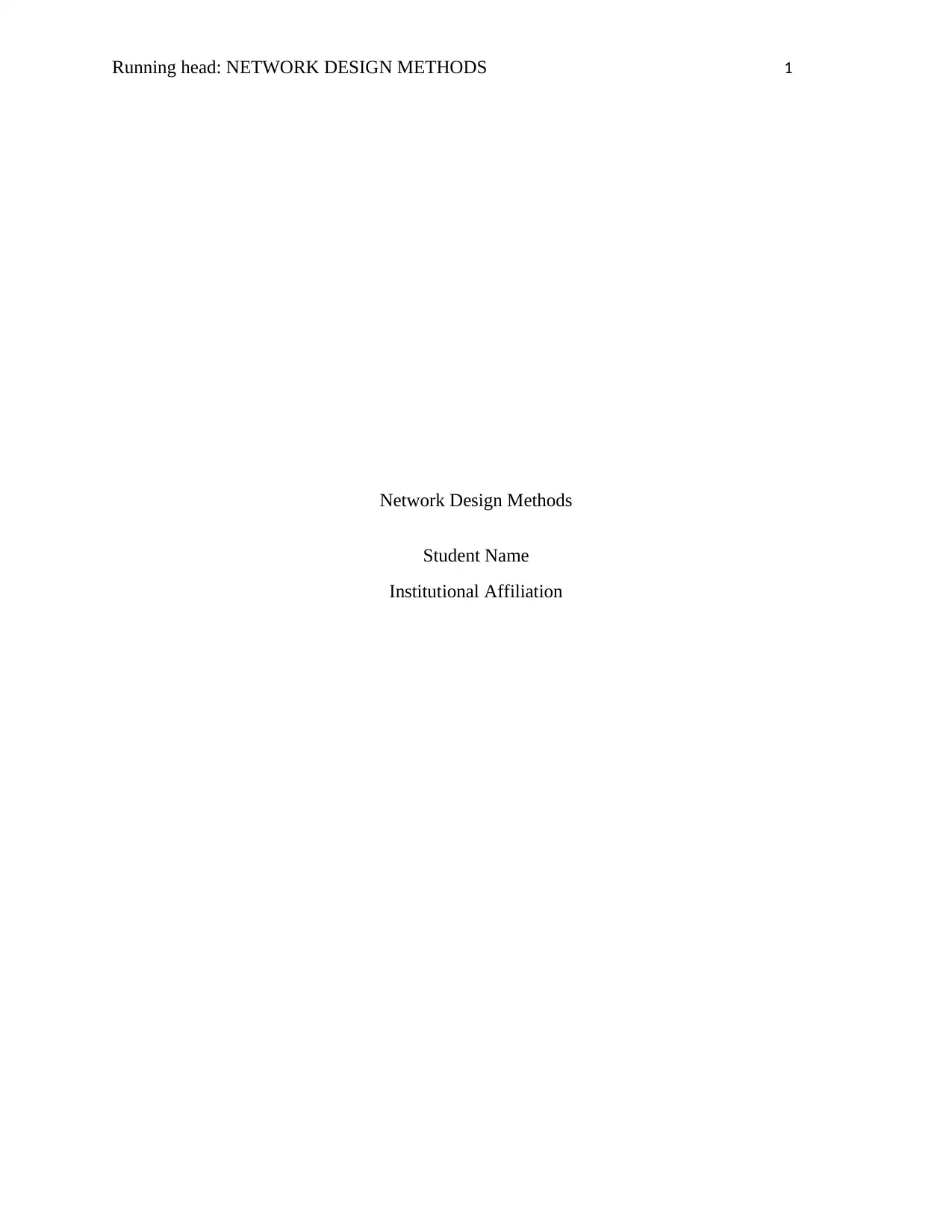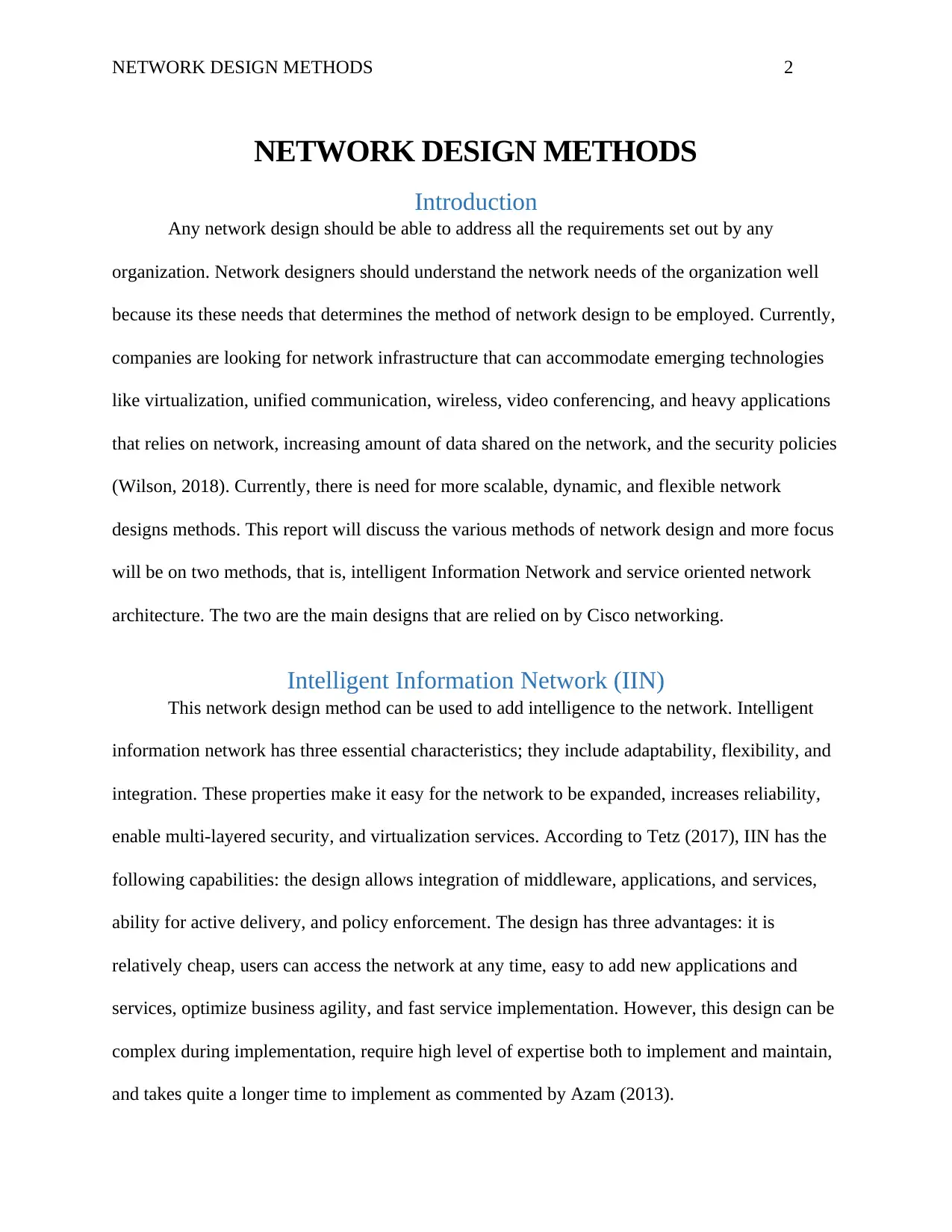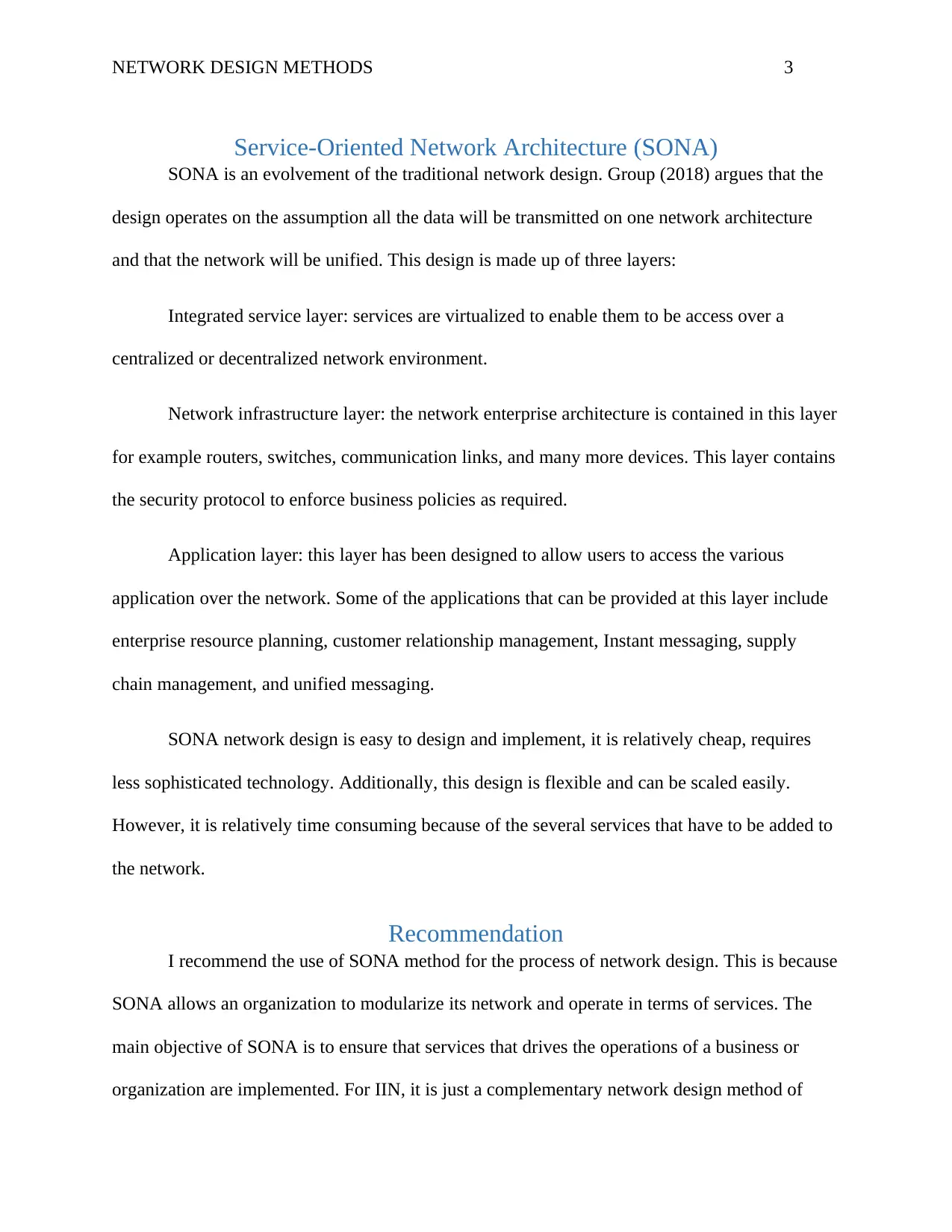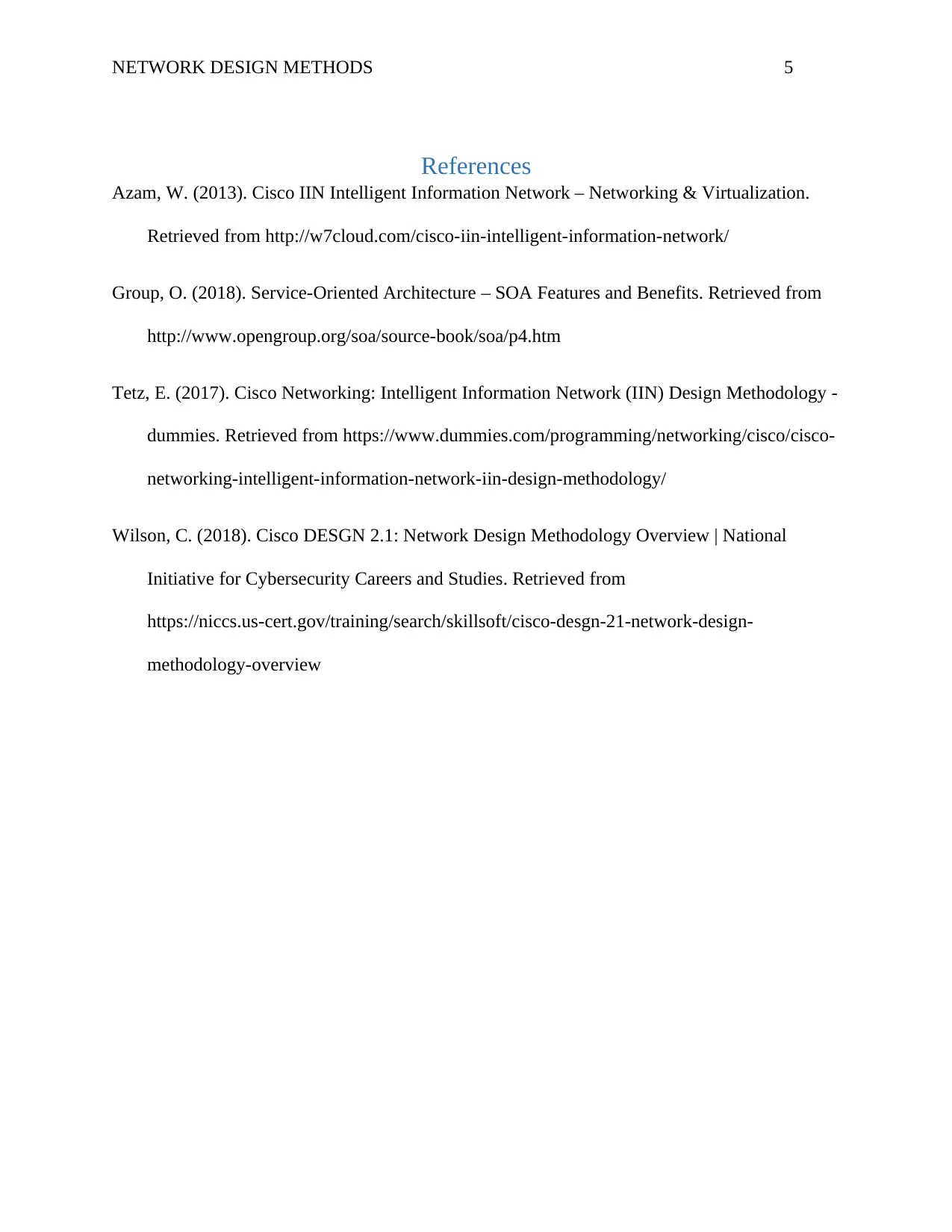Analysis of Network Design: Intelligent Information Network and SONA
VerifiedAdded on 2023/06/07
|5
|783
|207
Report
AI Summary
This report provides an overview of network design methods, with a focus on Intelligent Information Network (IIN) and Service-Oriented Network Architecture (SONA). IIN is characterized by adaptability, flexibility, and integration, enabling network expansion, reliability, multi-layered security, and virtualization services. SONA, an evolution of traditional network design, operates on the assumption of unified data transmission across a single network architecture and comprises three layers: integrated service layer, network infrastructure layer, and application layer. The report recommends the use of the SONA method for network design due to its modularity and service-oriented approach, while IIN is considered a complementary method for adding intelligence to an existing network. The document is available on Desklib, a platform offering study tools and solved assignments for students.
1 out of 5











![[object Object]](/_next/static/media/star-bottom.7253800d.svg)